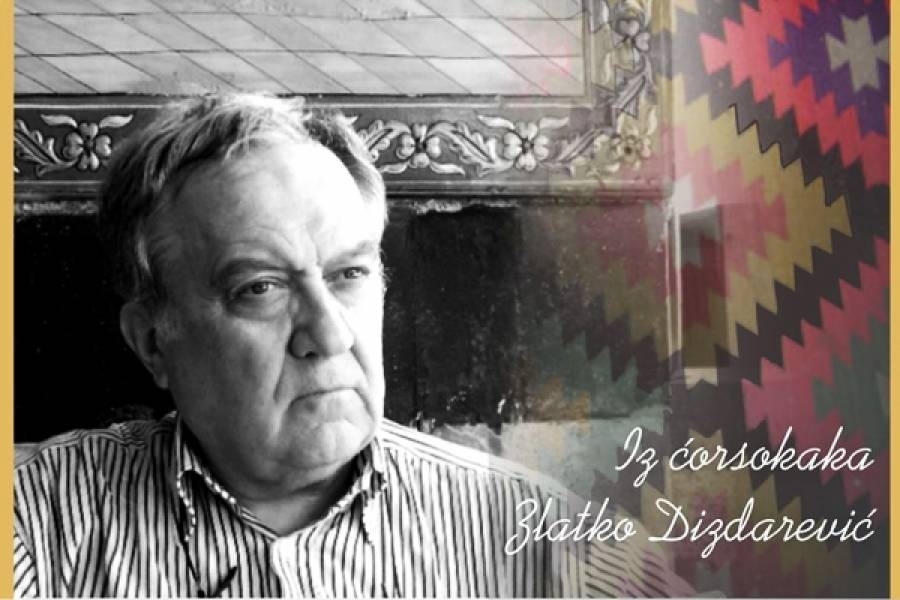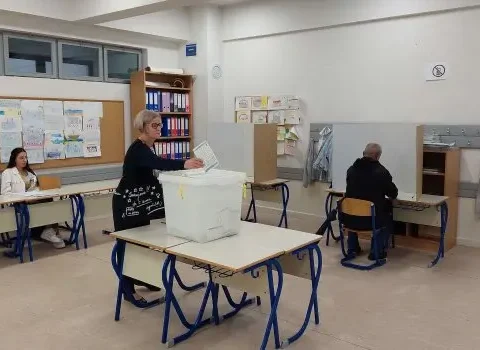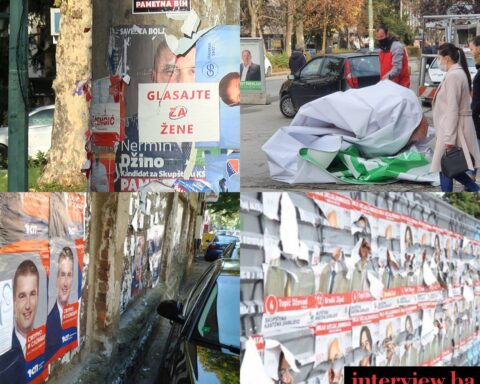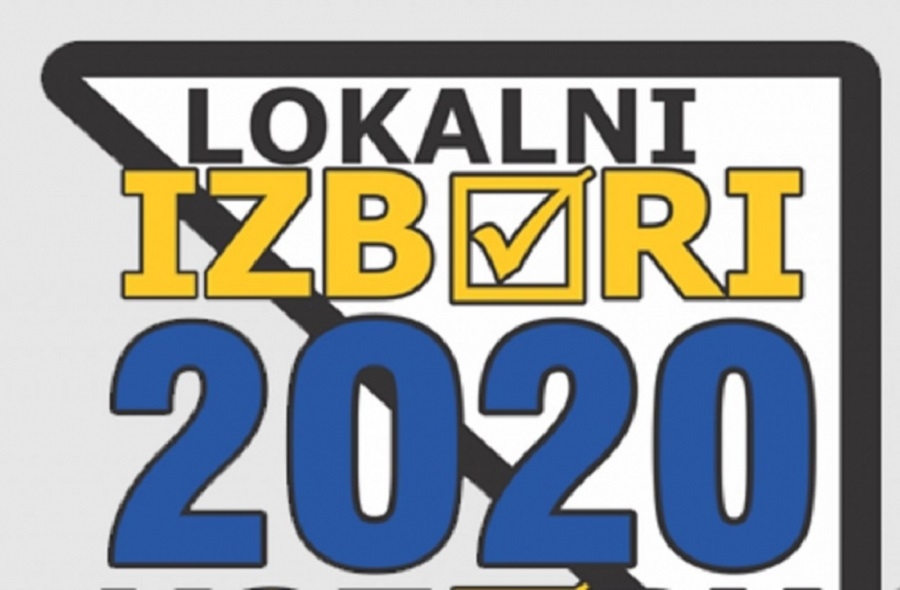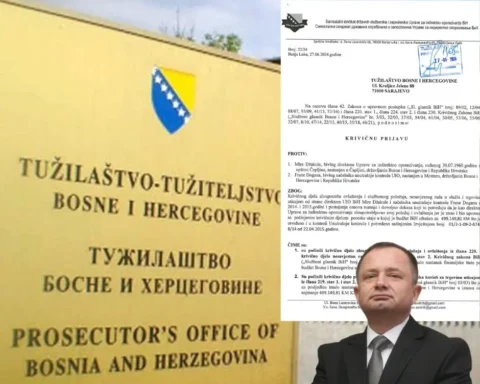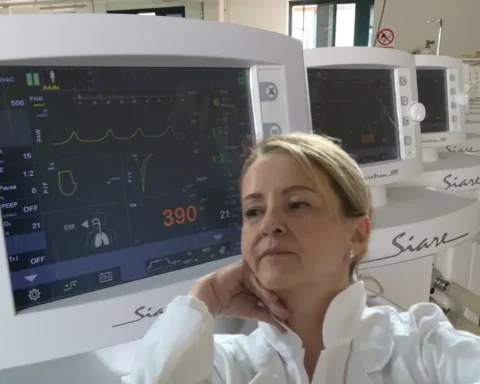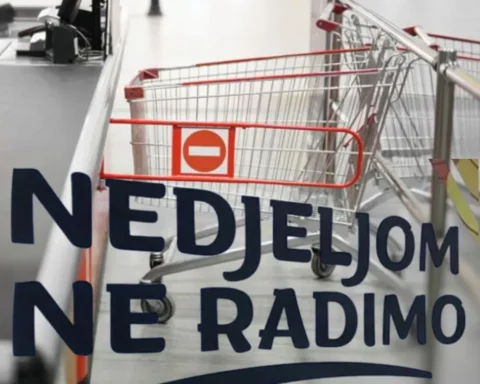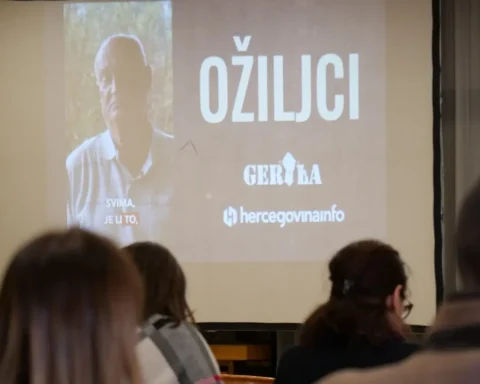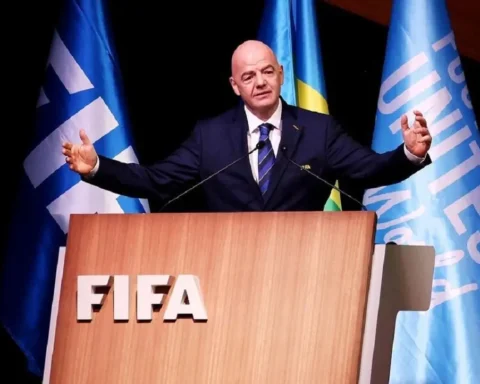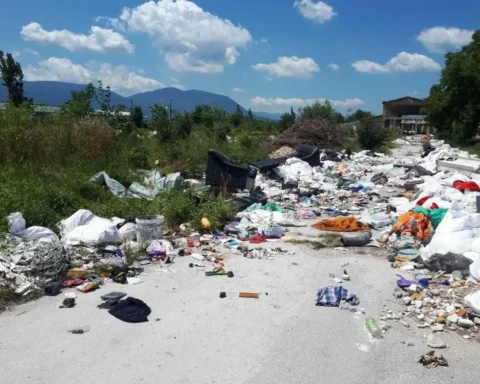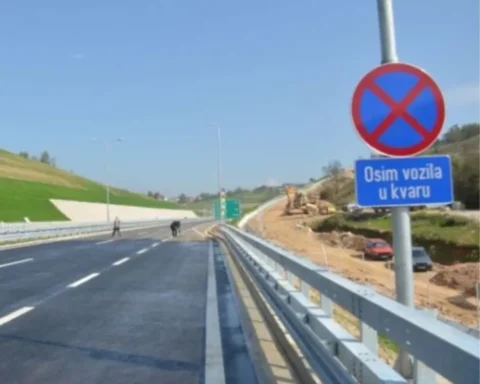Regarding the “political agreement on the amendments to the Electoral Law of BiH” reached in June between the leaders of two political parties, Bakir Izetbegović (SDA) and Dragan Čović (HDZ), so that after 12 years finally elections can be held in Mostar, the High Representative in BiH rushed to say how that was a “celebration of democracy”. To a bystander, it looked as if a heavy load was taken off his mind, so that now one can continue under that flag as well. Of course, the conclusions of the two party leaders were agreed in the presence of representatives of the international community, then adopted by the House of Peoples of the Parliamentary Assembly of BiH at the very last second – less than a month before the deadline imposed by the Court of Human Rights in Strasbourg by the judgement in the case of Ms. Irma Baralija. This citizen of Mostar sued Bosnia and Herzegovina because no elections have been held in that city since 2008!
By Zlatko Dizdarević for Interview.ba
Many embassies, international organisations and institutions in BiH euphorically supported the event that, there you have it, announced another of their victories in BiH. Better late than never. Of course, the followers of the two local “representatives of the people” sound similarly, who, as usual, have represented themselves here as the creators of the overall political reality in something that should be called a state. That reality in which the state has actually been suspended, and “any other solution beside this one would be worse”. Some even say that by this, Mostar has ceased to be an “incident”. Wrong! By this, Mostar, along with the way in which the “case has been deblocked” after the twelve-year-long targeted and organised blockade, has created an “incident” that is, essentially, bigger, worse, and even more destructive for the international community in the long run.
In the name of the formal unblocking of voting, obviously under the conditions of people not from Mostar, who have mainly devised and maintained the blockade until now – everyone will continue to govern in “their” part of the city of Mostar. Now the middle finger has also formally been shown not only to the European Convention on Human Rights and Fundamental Freedoms, the European Court of Human Rights, the Constitution of BiH, and all those principles on which the European Union is based, but also to the ideals that have for decades unquestionably been imposed as European ones.
It is public knowledge that the two “leaders” of nationalist parties had to come to an agreement under the pressure of conditions and the deadline following the afore-mentioned judgement. And it took Europe 12 years to exert pressure, so as not to hurt the local partners of the achieved status quo. At principled level, everything has been precisely said and written for a long time with regard to the ethno-territorial model or political representation concept as opposed to the obligation of respecting the civic political concept. In practice, for “pragmatic reasons” and the path of least resistance to the partners, corrupt nationalists, a different way was also possible after all. That is why now, even with the “celebration of democracy” and masked alterations of the Electoral Law, all citizens still are not equal in Mostar when it comes to elections, and they likewise do not have the right to participate in conducting public affairs without any limitations, to elect or be elected at elections for any public function etc.
And what happens? Following the judgement in the case of Baralija, that “triumphant deblocking”, legalised through the Parliament, is mocking the essential principles on which the orders from Strasbourg and Brussels are based. The citizens of Mostar will actually vote within the framework of the “new” electoral rules which, supposedly, achieve the core objectives which have actually been achieved there already. Two cities in one, divided ethnically for organisational purposes, mentally even much worse than 12 years ago, because time has worked for the project for which the leaders of the “agreement” have unquestionably fought – supported by their pawns in Parliament organised according to the same principle.
The stripped-down result of the agreement of the “legitimate representatives of the two peoples” (not to dwell too long on this falsehood – neither are all Bosniaks supporters of the SDA, nor all Croats of the HDZ, without even mentioning the absence of the third constituent people) is clear with regard to the “technical” result of the agreement: The six City Areas, as constituencies, do not provide the same number of Councillors to the City Council. The three City Areas with a Croat majority will elect 13 Councillors to the future City Council. The three City Areas with a Bosniak majority will elect 9 Councillors. Another 13 Councillors will be elected from the so-called common citywide list. Why and under which internal conditions of corrupt power sharing on an ethnic basis the leaders of the SDA and the HDZ have come to an agreement in this issue, would be their internal party affair, if all of it together had not been experienced and accepted as a success by the representatives of the international community, even referring to it as a “celebration of democracy”.
It is clear that many of the local “leaders” have long been convinced – in line with their political dimensions and power-holding narcissism – that precisely them are the decisive factor in the fateful geostrategic projects in the Balkans and beyond. With them like that and the motifs of those electing them, there can be no betterment in the long run. All the more so, as there are no opposition forces in sight capacitated to articulate those dissatisfied with such a situation and lead them in another direction. The mentality of waiting for internationals to regulate the local reality has become dominant to the extent that it has to be reckoned with in any idea of a turnaround. For all these reasons – on the example of Mostar – it is of capital importance to understand why the position of the internationals is the way it is. Why they actually are often on the wrong path, even when they believe that they “mean well”, and why their own “principles” no longer are as sacred to them as one thought they are only a few decades ago. How is it possible that many internationals who happen to be “dealing with us”, even beyond their interests, power relations and mutual games, so easily turn even into pawns in the rascally political calculations of the local cartel politics driven by interest. Persistently the same, “democratically elected” ones.
In order to somewhat understand that position, one has to observe affairs from a “bird’s eye perspective”. In it, we in Bosnia and Herzegovina, and not just we, are the object of primarily their, and only then, if at all, of our interests. In that point of view and the overall situation in the region, we still are not a priority because we are not endangering their interest. Like the cases of Serbia and Kosovo as the regional geostrategic preoccupation and with prices for opening borders and exchanging territories. (Dodik cunningly figured out the American concept with Vučić, so he is in Belgrade all the time). Likewise, the change of the name of Macedonia was their interest, again because of broader trouble with the south of Europe, then Montenegro’s accession to NATO over night and acquiring Đukanović in order to close the access to the “warm sea” to the Russians.
In our part of the world, maintaining the existing status quo in which at least “no one is shooting”, has been the success of the international community in BiH for quite some time now. And Mostar was just a little discomfort. Within their logic of not rocking the boat. What’s more, an asset for the local ruling structure with whom one should remain cooperative. Because to them, any serious business in the true approximation of BiH to the Europe of proclaimed principles, for instance in the area of the rule of law and respecting institutionalism, is a nightmare. The tribal and cartel organisation of the state has been realised and needs to be preserved in the interest of the partner. By a democratic facade in cooperation with the locals, by no means with the alternative, and with their own “pragmatism”, organisation, staff that comes and goes on around the world, diplomatic potentials and readiness for as much work as befits the operational level of the international community in dealing with those locals.
In such a state of “not rocking the boat”, Mostar became the pebble in the shoe, which had to be finally resolved, “what can one do”. Even if they would want to change that story truly and properly, there is great fear and dangerous ignorance from where that would lead us. There are many among the analysts and the politicians repeating how the local circumstances, just like the regional and global ones, have changed significantly since the time when Dayton was come up with. And there you have the excuses for the “agreement” on the elections, by which on the basis of common interests fraudulently only the form was touched. There will be an election, but in a way that will preserve the essence, i.e. the ethnical enchaining of two Mostars in one. And as we could see, all of that was achieved with official ratings by embassies and international organisations that considered it a success! No one is mentioning that the principles of the Strasbourg Court imposed themselves only by the deadline in which the judgement on the act of voting in Mostar must be complied with, and here it went 11 years without those principles, and then there are the essentially equal cases Sejdić-Finci, Pilav, Zornić, Šlaku etc. And those cases likewise are an essential blow both on the European Convention, the fundamentally European civic concept, and everything else on the level of EU “principles”.
The predictions of individual observers are pretty, who hope that the awareness of such betrayals of “European values” will prevail during the elections in a city in which young men and women have neither had the will nor the desire to even cross to a café on the other side of the river for a long time. Or a city in which not even the artistically grandiose partisan cemetery on the “west coast” can survive, as it keeps being demolished, scribbled all over with pathetic hate messages, not even for a moment left alone and in silence of its honourable mission. The protected criminals of the defeated and then resurrected Nazi ideology are wreaking vengeance on it, but also those who were brought up – not just there – in the new, corresponding ambience in the media, schools, in an atmosphere created in an organised manner in front of the eyes of that same international community that assesses the methods for the continuation and development of that mind-set as a “celebration”.
It is probably somewhat out of place to deal with the omissions the “international community” has made in Bosnia and Herzegovina since the moment of their need to stop the war, after which it stopped the war based on their needs. Here, to this day. Aside from Dayton, nothing was done that would even come close to the series of moves that were carried out after the Second World War in Germany. Neither were those who created and realised the war plans, who waged the war and came out of it as the leaders of this or that hateful provenance, swept away from the political scene; nor were the political parties who lead, supported and staffed the hatred and the blood. War criminals are still being “processed”, unlike Nuremberg, which finished what needed to be done in practically less than one year, and then left the remainder to history. Here you can count on your fingers those who were convicted and served their sentences without greeting freedom as heroes on airports, moving more and more into the textbooks of “two schools under one roof”. Instead of a “Marshall” Plan, the project of a new neoliberal occupation was completed with the destruction of everything that could have been a new chance for one’s own development, growth and self-respect. The thievish privatisation has also linked a new class of yesterday’s opponents in corruption-ridden interest, just as it has linked those who are not with them in poverty.
The initial short post-war enthusiasm, at home and in individual representatives of the international community alike, along with their seriousness and capacity, was substituted with those who would sometimes also come with honest ambitions, but who were not incorporated into the new “trends” and interests, often without the necessary knowledge regarding what this is about and who the “players” are who perceive the state they govern as their personal booty. Hence Mostar was and remained for many of them just a great tourist destination with the restored Bridge [Most] whose name has slowly started to lose its fundamental meaning. Remaining primarily tourism for them, and not what its purpose was even four and a half centuries ago – a link for everyone on both banks of one and the same city. Whatever their names and whatever God they worshipped.
In everything that is being analysed in the “victory” of the order-issuing agreement of the two political parties (?!) according to which, elections will be held as they used to, at least two bitter truths remain unchallenged. One of them also was the goal of the “agreement-makers”: a huge step has been made in the persistent three-decade-long effort to kill the idea of a multi-ethnic, civic Mostar. The other one is just as the great German political analyst Bodo Weber, who knows better than many of us, defined it: “The Mostar agreement has all the characteristics of a dirty job, achieved with the support of the EU and the West, which makes everything even worse”.
One has to add, worse also for them who have been racing for decades now with their make-believe reform agendas, urgent procedures, processes, declarations, conditions, threats, deadlines, promises… in order to maintain the status quo in which no one is shooting. How truly – in the name of European values. So even with tiny operations like deblocking the elections in Mostar, they are actually enchaining the essence of the blockade and divisions of a much wider range. Carefully but silently tracking how it is leaking towards them, to Europe, that segment of the young generation that does not even see a day of the promised happiness here anymore. Growingly persistently trained for victories along the line of division, those remain who have been brought up as a generation not to cross the Bridge, not to root for the same team in which members of all groups played equally beloved, just like the supporters-voters of the common constituency. So they might wonder today how Aleksa Šantić loved Emina…
With such an Old Bazar Kujundžiluk and such a colour of the Neretva River, how touching to foreign tourists.

